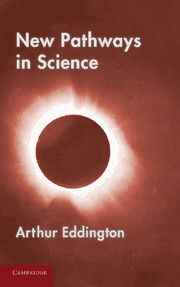Observational Foundations of Physics
The central models of theoretical physics have been extraordinarily successful in describing and predicting the behaviour of physical systems under an enormous range of conditions. But why are these mathematical theories so successful, and how is their structure influenced by the nature of the observations on which they are inevitably based? This intriguing book examines these subtle and fundamental issues, and concludes with the assertion that successful prediction provides compelling support for belief in a world independent of the observer. Dealing with important and basic aspects of the general framework of physics, this book will appeal to undergraduate and graduate students in the physical sciences, and to anyone with an interest in the empirical and metaphysical foundations of science.
- Lucid examination of issues which are of fundamental importance in the philosophy of science
Reviews & endorsements
"...presents an interesting challenge, and experienced readers will be stimulated to decide whether to accept the author's picture or to create their own." Rudolf Peirls, Physics Today
Product details
June 1994Paperback
9780521455978
180 pages
227 × 151 × 10 mm
0.43kg
4 b/w illus.
Available
Table of Contents
- Preface
- 1. Introduction
- 2. Standards of time and equations of motion
- 3. Observations at a distance: Special relativity
- 4. Microphysics: Relativistic quantum mechanics
- 5. Indeterminacy in theory and observation
- 6.Why does mathematical physics work?
- 7. Probable argument
- 8. Conclusion
- Appendix
- References.







